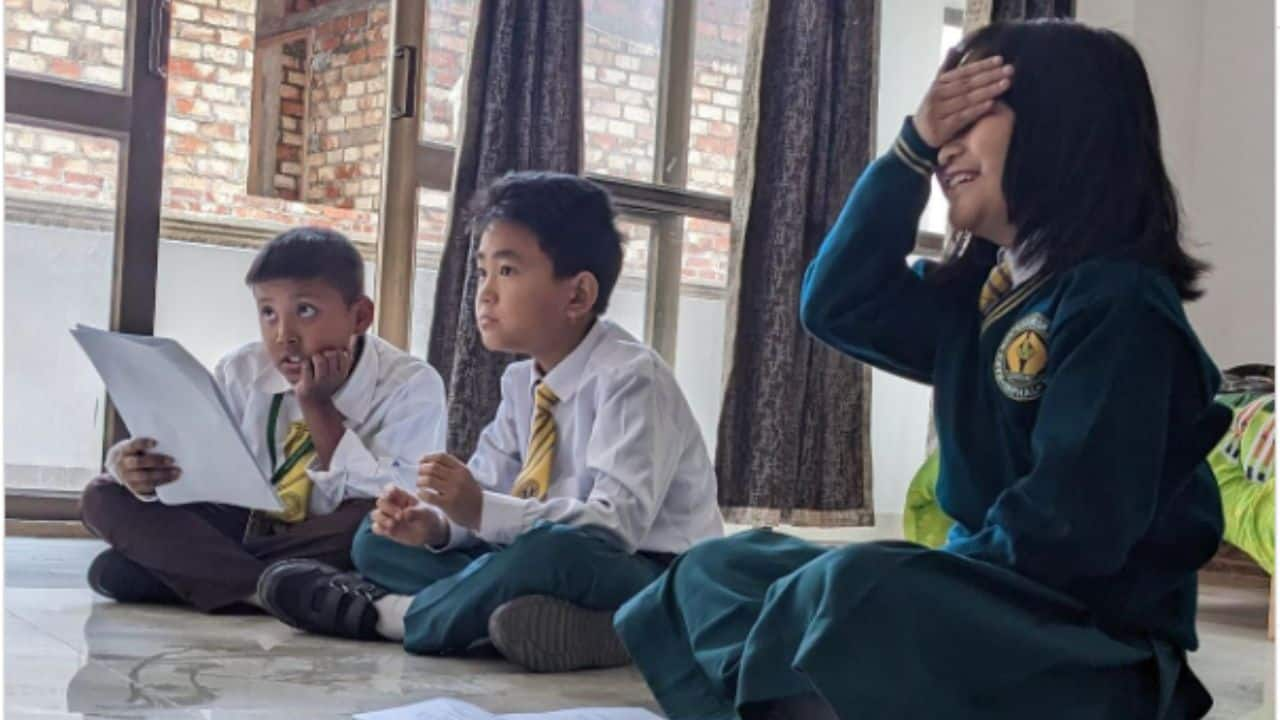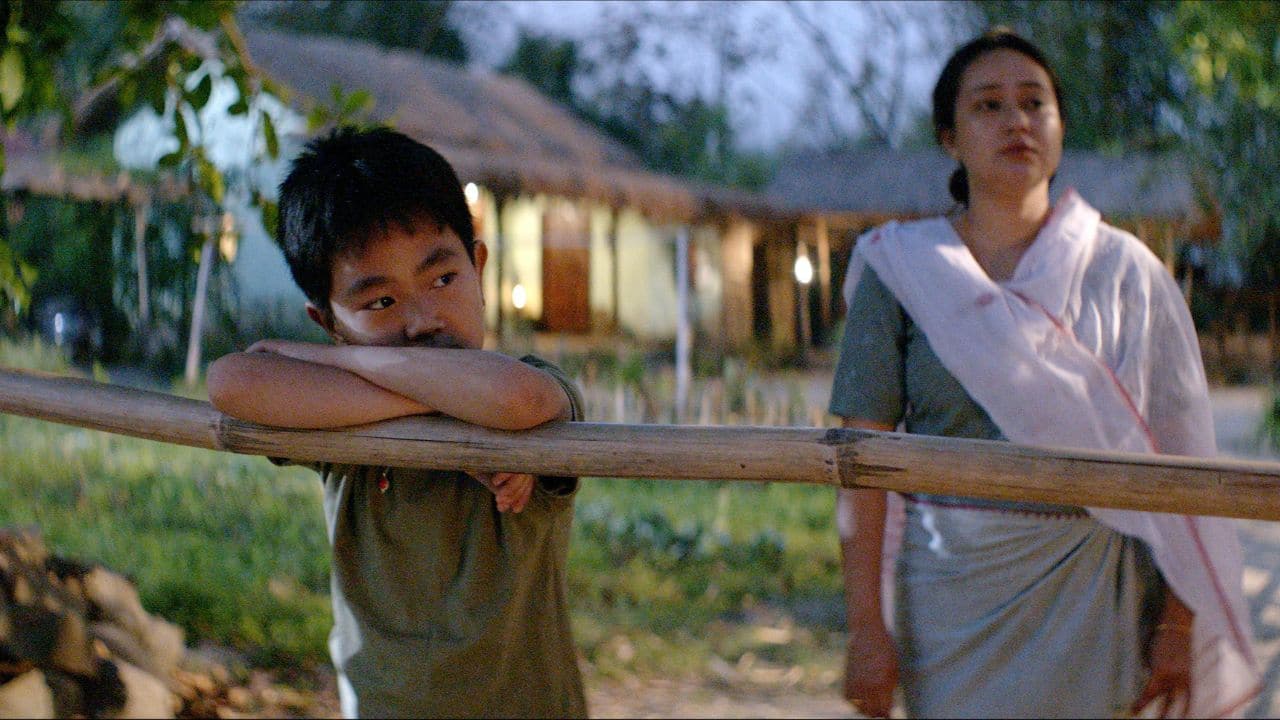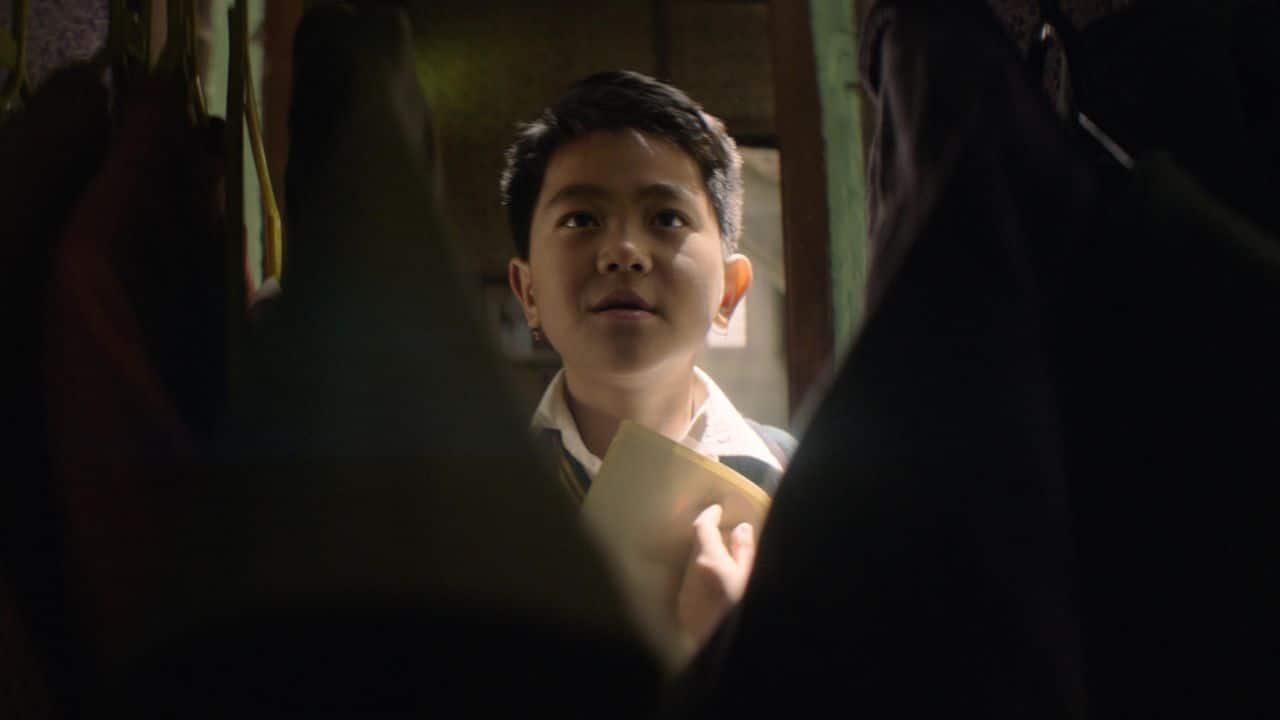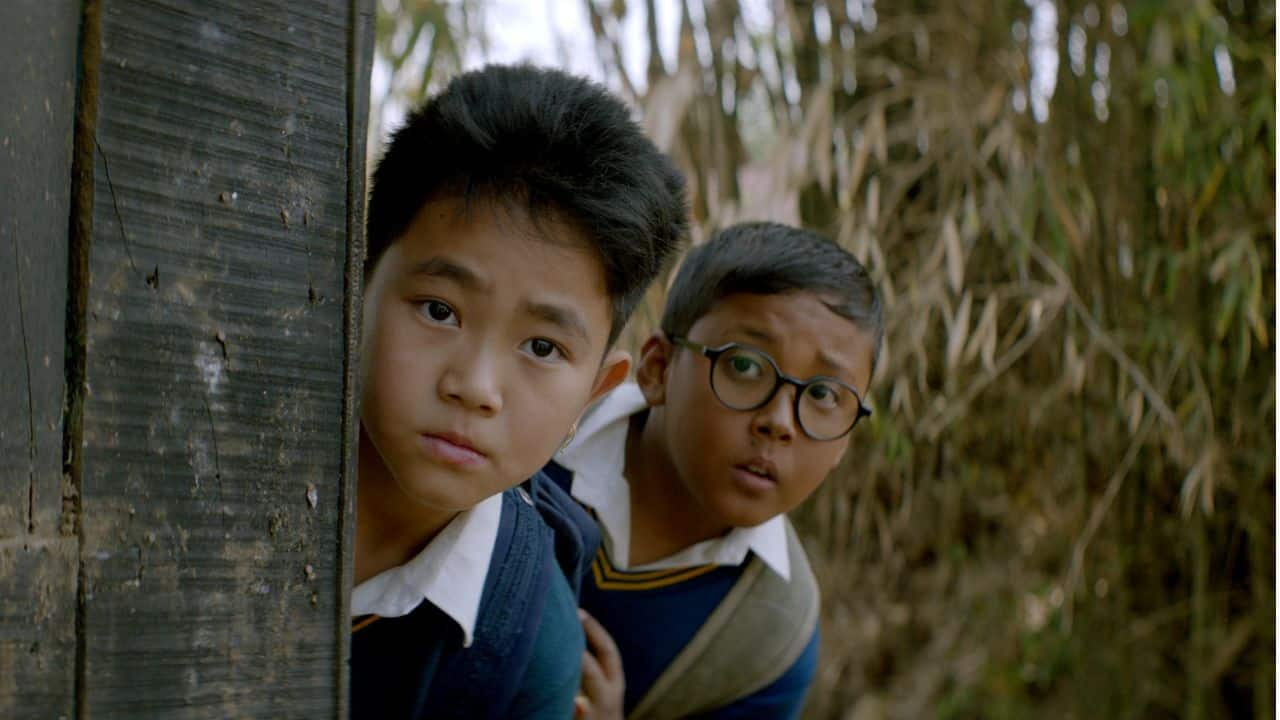



On Tuesday this week, filmmaker Lakshmipriya Devi was late for our scheduled video interview. I was trying hard to stay up past midnight here in India, while she was rushing back from a filmmakers’ lunch near one of the three theatres, at Scotiabank, where the Toronto International Film Festival (TIFF) was having its screening. She was held up by a huge protest by a crowd of Ukrainian-Canadians agitating against TIFF for screening a controversial, propaganda-ridden first-person documentary Russians at War, made by the Russian-Canadian filmmaker Anastasia Trofimova. TIFF, later, suspended the screenings. Last year, Canadian director Daniel Roher’s documentary Navalny (2022), on the poisoned Russian opposition leader Alexei Navalny, took home the Oscar.
In her own state back home, Manipur in India’s north-east region, ethnic violence between the Meitei and Kuki-Zo people, over the last one year, has continued to divide, destroy, and displace people. Lakshmipriya Devi, who was attending the world premiere of her debut film Boong at TIFF, Toronto, had wrapped up the film’s shooting a week before violence gripped Manipur last year. A lot has been lost since.
For Manipur, the largest film-producing state in the Northeast, its cinema has predominantly been Meitei cinema and Lakshmipriya Devi, too, is from the majority non-tribal Meitei community. Her debut film Boong, however, with its diverse cast and crew, across tribes, will, perhaps, remain a last document of what Manipur was, with its commingling of diverse people, of places which have now been razed to the ground, and how despite the ‘Othering’, a social reality as it is in the rest of India, there was a semblance of unity.
Lakshmipriya Devi, who has been working in the Hindi film industry for over a decade now (as assistant director on such projects as Lakshya, Luck By Chance, Rang De Basanti, PK, Talaash, Dahaad, A Suitable Boy) left Manipur at age 10 to go study in a boarding school in Delhi. Later, she graduated from Jamia Millia Islamia before moving to Mumbai. She traces her maternal-side roots to the erstwhile princely family. From her early years in Manipur, she recalls the many touring cinemas: Victory Cinema, Pratap Talkies, and Friends Talkies. Her maternal grandfather, a socialist, would splice tapes of films (a lot of German films) that used to come from Calcutta, and go around Imphal and in the villages in a van, with a projector and a bedsheet to screen movies. It sounds like a fable, she says.
 A BTS still of the Manipuri film 'Boong'.
A BTS still of the Manipuri film 'Boong'.
And a fable-like story is what she was aiming for in her debut film, Boong, which tells the story of Manipur through a child’s story. Boong (translated as ‘little boy’ in Manipuri) is the story of a boy, the titular Boong, short for L Brojendro Singh (Gugun Kipgen), who is searching for his father who hasn’t come home in months, so as to gift him to his woebegone mother Mandakini (Bala Hijam, a prominent Manipuri actress who was also seen in Dulquer Salmaan’s Malayalam road movie Neelakasham Pachakadal Chuvanna Bhoomi, 2013).
Boong is a layered film, it shows a slice of life of Manipur and its locales as it were and is high on the right emotions, with a lot of innocent laughter packed in: when with his bull’s-eye sling shots, Boong turns ‘Hemchondro’ Boys School into ‘Homo’ Boys School, and then recites Like A Virgin song by ‘Madonna aunty’ in the school prayer, among others. “All the things that the boy is expressing are what a child of that age would. The only thing which I was in two minds about whether to keep or not was when he says: ‘I want to get a gift for Ima, a gift for a new beginning’, because that’s the most adult thing he ever says in the whole film. But that is the very reason why I wrote the film. That the circumstances had turned him into an adult,” says Lakshmipriya Devi.
 Gugun Kipgen (left) and Bala Hijam in a still from the film 'Boong'.
Gugun Kipgen (left) and Bala Hijam in a still from the film 'Boong'.
Excerpts from an interview:
Is Boong the first Manipuri film to be shown in the TIFF Discovery segment?
Probably. At TIFF, however, three Manipuri films were shown earlier, too. Two of them were written by my aunt. One was Imagi Ningthem (1981) and the other is Ishanou(1990), both directed by Aribam Syam Sharma and were written by my aunt, who I really admire, and the third was a documentary by Haobam Paban Kumar (A Cry in the Dark, 2006).
Oh, you are MK Binodini Devi’s niece…
Yes. Oh, you’re Bengali, so you might know about her since she was in Santiniketan. (Manipur’s last princess and first female graduate, Maharaj Kumari Binodini Devi was, perhaps, the first Manipuri woman to study art, with artist Ramkinkar Baij, at Rabindranath Tagore’s Visva-Bharati University.)
Yes, and she’s also translated Rabindranath Tagore’s stories from Bengali into Manipuri.
Yes, yes. And Ramkinkar Baij…she was his muse. He’s done a series of paintings of her.
What sort of an influence was she on you?
She did deeply influence me. She gave me The Catcher in the Rye (1951) to read before I turned 10 years old. She used to always tell me, whenever I used to come for summer vacation, that ‘you must do something for Manipur’. She used to nag me. I think that nagging might have worked subconsciously.
For someone from a state that banned Bollywood films since 2000 (the last film screened was Kuch Kuch Hota Hai) to preserve its own heritage, it’s quite ironic that you would land up in the Hindi film industry.
Everything happens to me by accident. I knew one friend in Bombay when I came from Delhi, where I did mass communication at Jamia Millia Islamia. Back then, I didn’t know what an assistant director (AD) meant but since I had limited skills, it seemed the most probable thing to apply for. I worked for Bharat Bala Productions. The first movie I worked on, The Journey, was directed by an American director, Keith, and had an IMAX crew. Although it was very intimidating, I learnt discipline from that film. After that, I worked on Farhan’s (Akhtar) Lakshya (2004) as a second-second AD.
I would not call the setup like Bollywood per se because Zoya Akhtar was the executive producer, Reema Kagti was the first AD and they had worked in that setup which (AD) Apoorva Lakhia brought to Lagaan (2001). They were trying to work pretty much in the same American system that I had just worked in. The technicians had worked on foreign films. I don’t think I have worked in a very Bollywood film. I don’t know what that is.
[Working on] Lakshya was a lot of fun. We were in Ladakh for many months and, in those days, phones were rare. Mr [Amitabh] Bachchan had one satellite phone, the only person to have a mobile phone. We’d all stand in line to make calls, and obviously the stars would try to hog the phone, like Hrithik [Roshan].
Did Farhan Akhtar and Ritesh Sidhwani’s Excel Entertainment produce your debut film out of goodwill?
Boong has three producers. Vikesh Bhutani from Chalkboard Entertainment. He was the first producer to come on board and, incidentally, he was also the CEO of Excel. Then there was Alan McAlex’s Suitable Pictures. He did not work with Excel, but he was the executive producer on Zoya Akhtar’s first web-series, Made in Heaven. So, I think, somewhere all of us had some Excel connection, and especially me, I had a very, very deep Excel connection, and I still do.
What’s that one lesson you learnt as an assistant director in the Hindi film industry?
That we shouldn’t waste money. I was very happy that my first film was low budget. It really pinches me when I see money being wasted. And I feel there’s a lot of splurging happening around.
What’s your favourite children’s film of all time?
Life is Beautiful (1997). And I really love the Japanese film Like Father, Like Son (2013).
 A still from 'Boong'.
A still from 'Boong'.
Was using a child protagonist to reflect on the political issues of Manipur inspired from Iranian films?
When I wrote this story, I didn’t think of it as a children’s film. It was something that I as a child had experienced, sad, happy, or painful things. I think Iranian films have a lot of [influence] pretty much, but it was not like a tool per se. Telling children’s stories helped me to talk about the sociopolitical tensions, but use it as a backdrop and let it only come out when it’s required. When I was studying mass communication, we had a course on puppetry and my teacher used to say that people don’t want to listen to an adult telling/lecturing them what to do, it’s easier when a puppet tells them. I can understand now why he taught us that because a lot of things are more palatable when looking through a kid’s lens. Politics can be very heavy. Coming from a troubled place, you can choose to tell a really sad, morose, dark story. But Manipur is also not like that. Despite whatever happens, there’s so much colour, dance, music, happiness. So, I wanted to tell a story which anybody can enjoy like how I used to enjoy my grandmother’s folk tales. I was aiming to tell a story with a fable-like feel to it.
The aspect of double life/identity, on either side of the border, about a key character in your film is intriguing.
The thing about double life, firstly you are a Bengali, so, you should totally be obsessed about Subhash Chandra Bose, aren’t you? I’m obsessed…with people who disappear voluntarily. We all have a mask, people actually put on a mask on a different level by just disappearing. I’ve been fascinated about that because we had a great grandfather who was in exile, and he was not present [in our lives]. There were stories about him. That was the first layer in my story. Some of the characters have bits and pieces of me, and are combinations of people I know.
Manipuri women are known to be resilient. You’ve shown Meitei women running the shops while the men are drinking and whiling away time.
You very rightly said that when you see in the market where she (Bala Hijam’s Mandakini) works, you only see that women are working. Those were the things which I was very, very conscious that I want to put [in the film]. These women are extremely strong. That and the Ima Hotel in Moreh, I want to show as many women as working women. And that is what Manipur is. You go anywhere in the state, they’re the ones who are working. It’s not that men are not working, I’m not saying that. But it’s actually also kind of historical because when we were a kingdom there would be a lot of wars, with the invaders, especially Burmese, so, the men would go to war, and the women would run the handloom stores, the market, etc. It’s actually what they say, gene memory. Your genes remember, and it’s been passed down [generations]. So, women taking care of the businesses has been there for years and years. That’s something I really wanted to portray.
There are many kinds of ‘Other’ in your film. A transwoman plays a key role. Was it a political choice to be inclusive and give representation?
Definitely. It’s not a political choice but it’s a conscious social choice, because we have this shaman culture and a festival that we celebrate in Manipur called Lai-Haraoba. Lai means God, Haraoba means happiness or celebration. And the shamans, the priestess, were all men. Now they are more females. But when I was growing up, till very recently, they were all men dressed as women. And how beautiful they were. The transgender community is so cool. In Manipur, they live with their family, not separately. They are smart, well-dressed, have businesses, and say the most fun things. I really look up to them. It was very clear that JJ was going to be a transgender. Jenny, who is a transwoman and a makeup artist, very sweetly choreographed the song because we had no budget. I was so happy I didn’t change the character. What I love about them is that along with their struggles, they’ve managed to laugh.
 Gugun Kipgen (left) and Angom Sanamatum, both non-actors, in a still from 'Boong'.
Gugun Kipgen (left) and Angom Sanamatum, both non-actors, in a still from 'Boong'.
The lead boy, Gugun Kipgen, is magnetic. He’s a Kuki-Zo who plays a Meitei in the film. How difficult was it for him and for the Hindi actor Vikram Kochhar, who is a ‘mayang/outsider’, a Rajasthani shopkeeper in Manipur, to pick up the Meiteilon language?
First, for the kid, it was very difficult because he absolutely started from scratch. But it was his mother, Kim, who’s the most amazing child-actor’s parent I ever met. She got him a tutor who’d teach him the language. Eventually, we had a dialogue supervisor who’d correct his diction. The Manipuri (Meiteilon)-speaking people will know that the accent is not 100 per cent but I was fine with that because if you move a little away from Imphal and go towards the outskirts, the village people speak slightly different Meiteilon than the city people. This boy, he really pushed himself and all of us. He was extremely naughty, he troubled the crew but was always willing to learn, whether a new language or the slingshot move, the process with him was always fun.
Vikram found the language so difficult and would get the pronunciations very wrong initially. My script had dual language (Manipuri and English), but he wanted to know how to say his lines in Hindi. He really worked on it himself, and with the help of the dialogue supervisor. I made him hang out with the (Rajasthani) family who owned that shop. They are Marwaris from Rajasthan who came to Manipur in the 1940s, so it is also their story. Vikram was in the middle of shooting for Dunki, so he’d shoot for me in between his Dunki shoots, I had only that window.
Your film will, perhaps, be the last visual documentation of the Moreh town, near the Manipur-Myanmar border on this side, that has been ravaged by the ethnic violence. It will also be the last document of a way of life that will never be the same again.
Yes. The last documentation of the unity we had. People are hurting, both the communities are really hurting. And just a few days before coming to TIFF, I was wondering how every human being has the power to forgive and how we don’t use that. So, this festering of hatred… everybody is in pain…and the whole thing right now is pointing fingers. There’s no closure. So, I hope there’s some closure, peace, and peace of mind, because they have gone through too much. People have lost their homes, they’ll never go home again. You can’t even go back to your town. So, it’s a complete uprooting [of people] and it’s happening in our own country where not many people talk about it. It comes in the news. It was there last year and something happened recently. Now again, there’s been a few internet bans. Whenever I used to look at the [news] footage, I could not bear to look at the places because I know what it was like earlier and I can see it in my [film’s] footage and working stills of how everyone and everything was. People, now, are so scared to talk to each other. Things have changed. It’s more than heartbreaking.
 A still from 'Boong'.
A still from 'Boong'.
You end the film with a note that some of your cast and crew have suffered in the violence, lost their homes and are in relief camps. Have you spoken to them, did you notice any behavioural change in them?
There were behavioural changes in some people, obviously. I’m not in their place, they have lost so much. So, obviously there will be some sense of bitterness, but that is very small, at least from my crew, because I think the way we bonded together was so special. My crew in Manipur are so happy [with the TIFF premiere]. They made the effort to stay in touch with each other. The only person whom I’ve been trying to reach unsuccessfully is the little girl in the film, she was in a [relief] camp in a slightly remote area, but I don’t know why they are not taking calls. There’s been so much of a problem lately that nobody has been able to go and check on her.
If you were to say one thing to the powers that be with regard to Manipur, what would that be?
I can’t give them solutions. But when this whole thing was happening, I kept wondering, is there any one person who can unite people? And the only person was Mahatma Gandhi… who led the whole protest against the British, without violence. And look at the situation in Manipur right now… everyone’s taken up arms, it’s the easiest thing to do. So, I wish somebody who values human life and humanity above all would rise up and start this reconciliation process, on the foundation of non-violence. In the present time, the only person alive right now, and who came to my mind, is the Dalai Lama, and, it’s ironic because he himself is in exile here. But there has to be conciliation from both sides. We have a wonderful member of Parliament [Bimol Akoijam] who is really speaking up, passionately. He’s a ray of hope. I’m not talking about political parties but about individuals who are passionately feeling about [peace and unity] and not are leading the violence.
Discover the latest Business News, Sensex, and Nifty updates. Obtain Personal Finance insights, tax queries, and expert opinions on Moneycontrol or download the Moneycontrol App to stay updated!
Find the best of Al News in one place, specially curated for you every weekend.
Stay on top of the latest tech trends and biggest startup news.